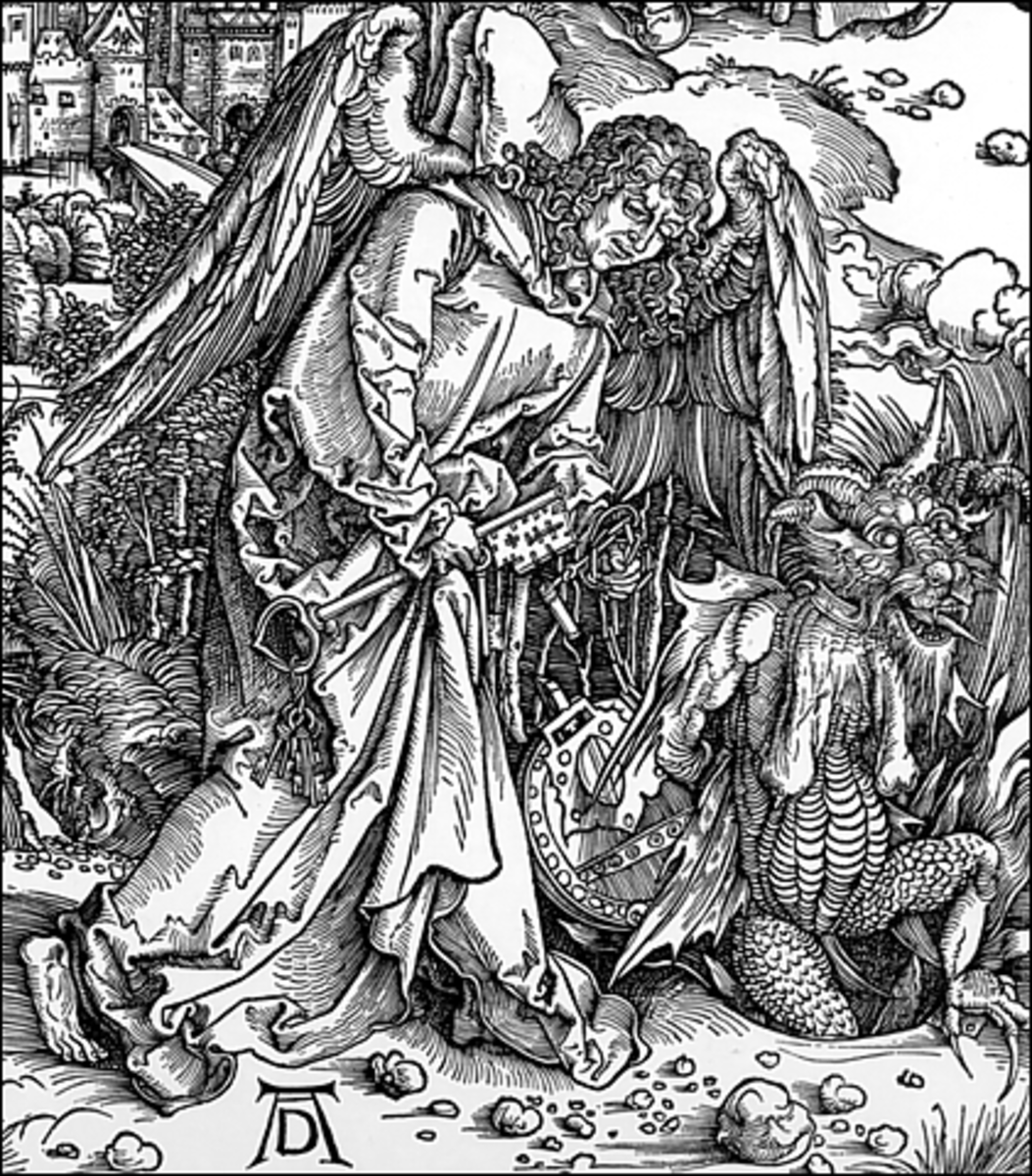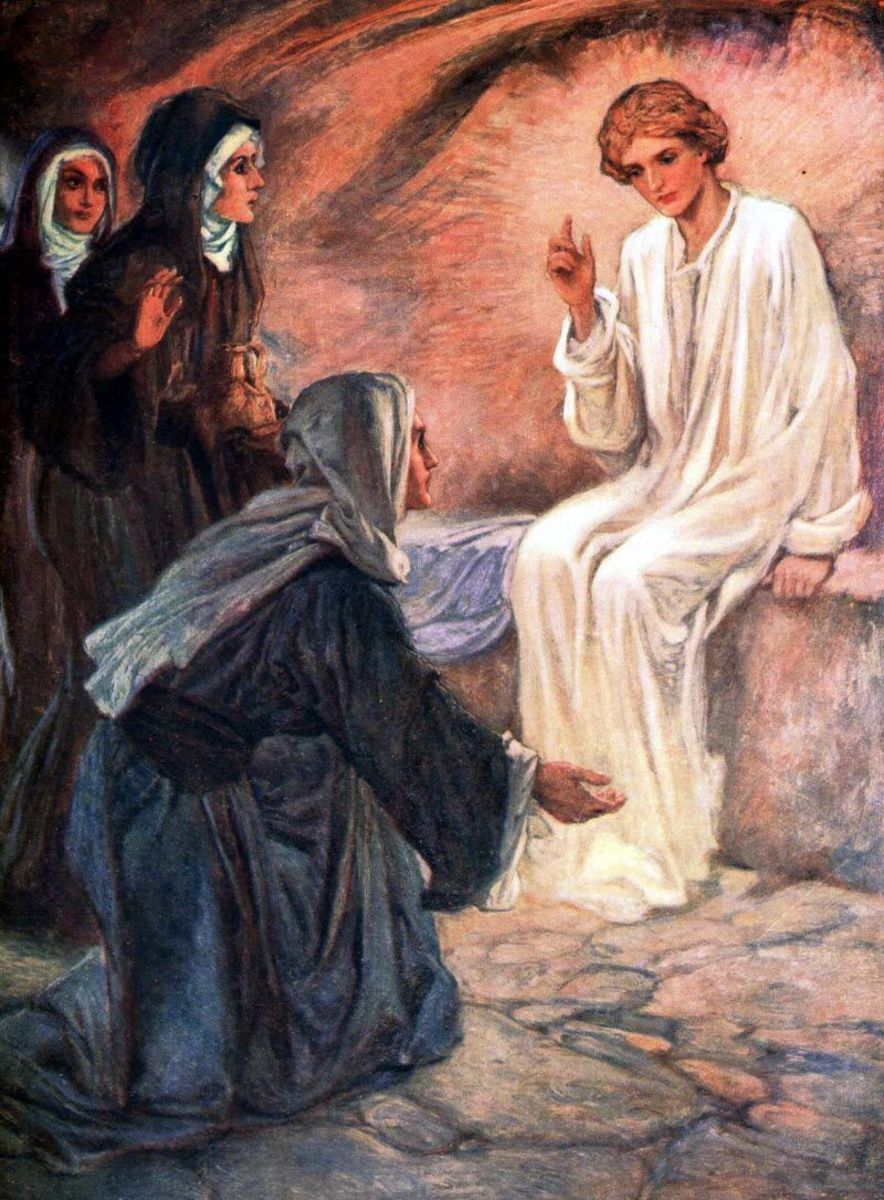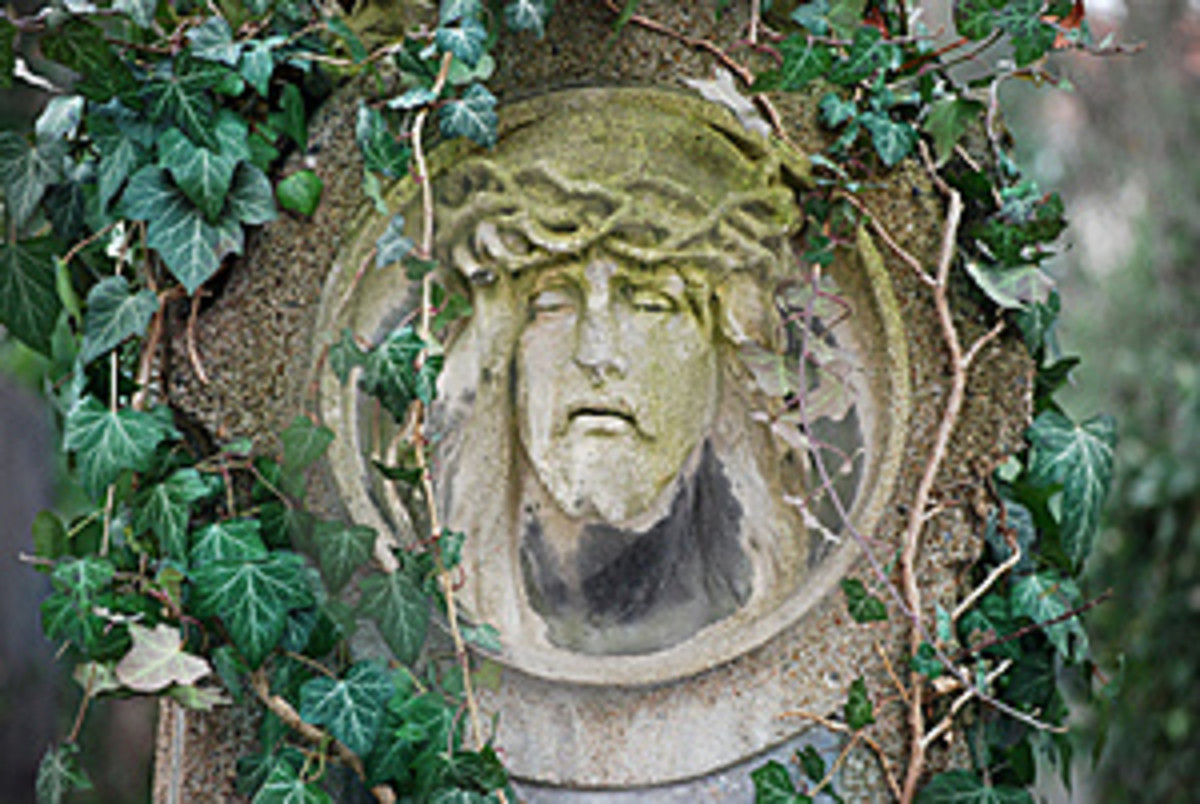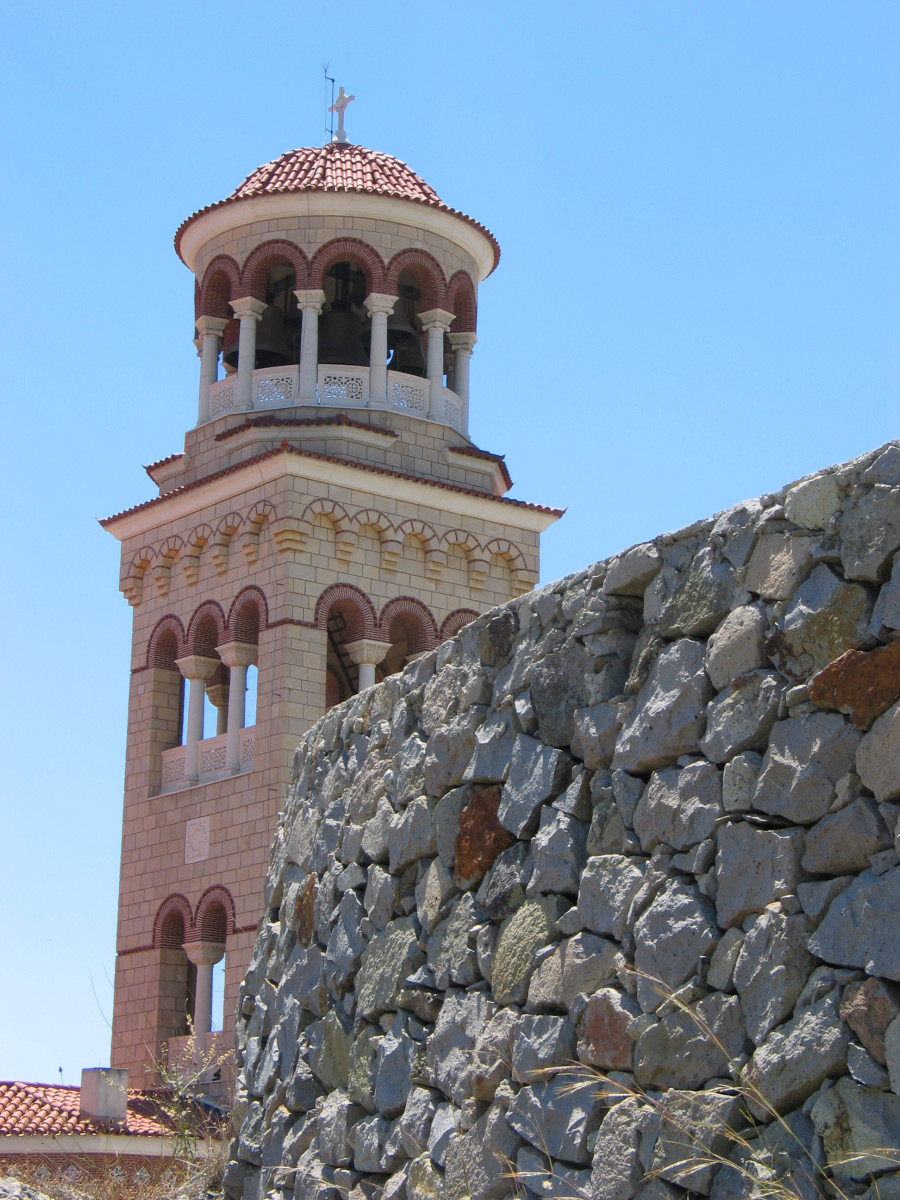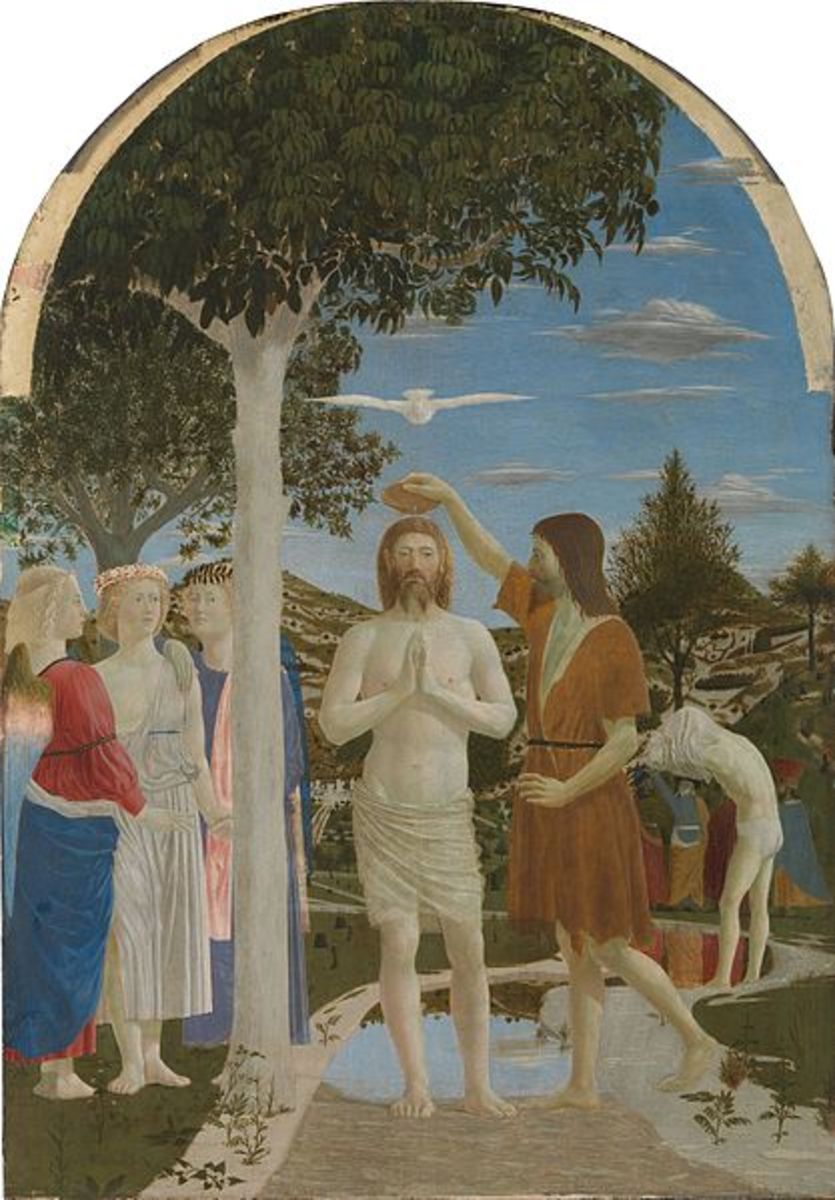Missions as We Go - Acts 9:32-10:48

“Missions to our Judea” define how we go “On Mission” to our region. As we travel or “as we go” throughout the United States, we should constantly be “On Mission” for Christ. As we travel for work, go on vacation, or even visit friends or relatives, we should always be looking for opportunities to share Jesus with a lost and dying world. When you are at a restaurant, asking your waiter or server if you can pray for him/her, can open the door to the Gospel presentation. Saying “We are about to bless our meal, is there something we can pray for you about?” is just SO EASY to do and that can lead to telling a stranger about Salvation through Jesus Christ. As we look this week at missions to our Judea, (or our home country) we will see some biblical examples of people going “On Mission” in their Judea, and we will focus on how we can do missions now, like they did then.
Division #1: Peter goes to Lydda and Aeneas is healed.
Acts 9: 32-35
32 Now as Peter was traveling through all those regions, he came down also to the saints who lived at Lydda. 33 There he found a man named Aeneas, who had been bedridden eight years, for he was paralyzed. 34 Peter said to him, “Aeneas, Jesus Christ heals you; get up and make your bed.” Immediately he got up. 35 And all who lived at Lydda and Sharon saw him, and they turned to the Lord
We focus this week on Peter and missions to Judea. After Pentecost, the church began to grow by leaps and bounds. We know that the church suffered under the oppressive Roman government, as well as the Jewish establishment. But this was a GREAT thing for the church, because with all the members scattering, they became de facto church planters. Everywhere they went, a church sprang up. Sometimes meeting by the river, sometimes in people’s houses, but we see that from the persecution of the church (exemplified by Saul’s earlier campaign and the Roman government) the early church grew where it otherwise wouldn’t. In God’s divine providence, He did not allow the early church to get lazy or complacent. He scattered them around the region and beyond, to begin the spread of His church.
Peter first left to go to Samaria to visit the churches that Philip had been planting and encouraging. After Peter’s Samaria journey, he returned to Jerusalem to report to the main body of the church, and then he headed off west. This would be his trip to check in on churches through the region of Judea. The Holy Spirit led him to head towards Joppa on the coastal plains, called the region of Sharon. On the way, urged by the spirit, he stopped in the town of Lydda. (the modern day city of Lod) and there he met Aeneas, who had been bedridden for eight years. Luke does not include the details of his ailment, but gives us a picture of a frail man who was reliant on others for everything. Aeneas may have probably been placed on a mat by the city gate, to beg for money or food, which was the only way he could have taken care of himself. It is also possible that Peter may have been invited into someone’s house who might have been caring for Aeneas, but the specifics are not detailed in scripture. Luke does not give the scene, but he does list the details of Peter’s actions.
To review, rewind back to an earlier story in John 5:1-9. We see that Jesus healed a man at Bethesda who had been paralyzed for thirty-eight years. Jesus asked him if he wanted to be healed, and after the man’s response, Jesus then told him “Get up! Pick up your mat and walk”. Fast forward to Acts 9:33 and Peter ran across the same sight. We can assume there was some conversation here because Peter learned of this man’s history and ailment. He learned Aeneas was a paralytic, was helpless, and he was in need of the healing hands of Christ. Peter saw the situation for what it was, an opportunity to boldly act under the guidance of the Holy Spirit.
Peter said to him “Jesus Christ heals you; get up and make your bed” Peter used almost the same exact words as Jesus used earlier at the Bethesda. What a great picture, to see Peter learning and doing as Jesus did, using Jesus’ words in the correct way, going “On Mission” there in Lydda. Peter was also very careful to explain where the source of the healing is coming from. Peter did not just say “you are healed”. Peter did not say “I heal you”. Peter clearly details that the power to heal came from only one place, and this is from Jesus Christ. He is the Great Physician, and the power to heal is His alone.
Now, look at the map and see where Lydda is. It is on the road between the historical seaport of Joppa and Jerusalem. It was eight miles from Joppa and thirty two miles from Jerusalem. It is the perfect place to take a break while one was traveling from Jerusalem to Joppa. Many travelers would stop by Lydda, and if Aeneas had been laying at the city gate for eight years begging, many people in the region would have known about him and his ailment. Given that this event probably happened in full view of everyone, LOTS of people saw this and word about this would spread. Verse 35 says that all who lived in this town and Sharon (which was the surrounding coastal area) turned to the Lord. By Peter being willing to let the Holy Spirit lead him and by Peter being his usually bold self, radical change happened not only to this man but also to the region.
Lastly, we also see that Peter cared for this man’s soul, as well as his wellbeing. Peter used the name of Jesus when sharing and healing. Peter did not just throw some money at this guy, Peter did not walk down to the local food pantry and make a donation in that man’s name, Peter actually took the time to go “On Mission” one on one with a man in need, and through that one act, an entire region came to know Jesus.
1: The most perfect example for us to emulate is Jesus’ life and His actions.
Application Question: When have I shared my testimony with someone, rather than ignore them or given them a few dollars?
Division #2: Peter goes to Joppa and Tabitha is raised from the dead.
Acts 9: 36-43
36 Now in Joppa there was a disciple named Tabitha (which translated in Greek is called Dorcas); this woman was abounding with deeds of kindness and charity which she continually did. 37 And it happened at that time that she fell sick and died; and when they had washed her body, they laid it in an upper room. 38 Since Lydda was near Joppa, the disciples, having heard that Peter was there, sent two men to him, imploring him, “Do not delay in coming to us.” 39 So Peter arose and went with them. When he arrived, they brought him into the upper room; and all the widows stood beside him, weeping and showing all the tunics and garments that Dorcas used to make while she was with them. 40 But Peter sent them all out and knelt down and prayed, and turning to the body, he said, “Tabitha, arise.” And she opened her eyes, and when she saw Peter, she sat up. 41 And he gave her his hand and raised her up; and calling the saints and widows, he presented her alive. 42 It became known all over Joppa, and many believed in the Lord. 43 And Peter stayed many days in Joppa with a tanner named Simon.
Luke implies that Peter didn’t just heal Aeneas, but that Peter spent a bit of time there. We do not know how long, but it was long enough for the disciples in Joppa to hear Peter was there and send some guys for him. It COULD have been the same day, but it could have been a week or a month, we do not know. What is known is that Tabitha had died, the disciples in Joppa knew where Peter was, and they sent for him. Lydda was only 8 miles away, so by walking that would have been about a 4 hour or half-a-day journey.
We know that Joppa (modern day Tel Aviv) was a major city in the region. It had been the main port on the sea. It had also been there a long time, even before the exodus of Israel from Egypt. You may remember that Joppa was the port Jonah departed from when he was running from God’s mission for him. Joppa was also mentioned in the Old Testament books of Joshua, 2 Chronicles and Ezra as well. A lot of time had passed since the events in the Old Testament, and by this time Joppa was losing the influence that it had, being replaced by Caesarea to the north.
So what do we know about Tabitha? Luke spends more time on her backstory than he did for Aeneas, and that may be just because more was known about her. She obviously had the gift of service. She was not known for her good looks; she was not known for her riches, she was known for her service. That in itself is a testament to her. Some might say that she had the gift of sewing. She also didn’t just take on charity work one time; this was a continuing theme in her life. She lived to sew and lived to serve, so she took her two passions and went “On Mission”.
Luke tells us that she had become sick, and she passed away. A group of people then washed her body to prepare it for burial, and laid her body in an upper room. We do not know who the group of people was, it only says “they”. The two groups of people spoken of in this passage are the widows and the disciples. Since she was a lady, it would be unlikely that the disciples had been the ones who washed her body, so we can assume it was this group of widows who did this kind deed for Tabitha.
As she was laid in the upper room, people came to mourn for her passing, and some of them were the disciples. We do not know how it happened, but some things may have happened near the same time. The disciples heard about Tabitha’s passing, and they also heard of Peter being in the area too. (They might have heard of Peter healing Aeneas at this time.) Making the logical conclusion, they sent two guys to have Peter come to them at Joppa, and the message was for him to get there “quickly”. Scripture does not tell us that they thought Peter would raise Tabitha from the dead, but they wanted him there. They might have wanted him there to honor her before her burial, or maybe they wanted to know how to proceed with a Christian funeral, or it is also even possible that the disciples there had taken Nazarite vows and could not be in the same house with a dead body. Whatever the reason, they sent two men to go bring Peter back. The reason for sending two people is that the roads were not very safe (remember the Good Samaritan story). Two people would provide protection for each other, two people also made sure the message got to its intended person if one got sick or injured, and two people also protected against someone relaying an incorrect message. So these two guys head to Lydda and found Peter, and Peter returned to Joppa with them. Peter was willing to go “On Mission” wherever the Spirit willed him. Again we see that Peter was willing to go and help any church that needed or wanted him there.
When Peter arrived at this house in Joppa, he was escorted upstairs to where Tabitha’s body has been laid. All around her, widows model and show Peter the clothes Tabitha made. Scripture says she made these clothes while she was “with them” so that does imply that Tabitha herself may have been a widow, and ministered directly to the other widows with her. It is an interesting side note that even modern funerals are like this to some extent. When someone passes away; when you go to the visitation, there will sometimes be a slide-show playing with pictures from that person’s life, pictures are set out of that person with family and friends, or items that were near and dear to that person are placed around. It is a testament to Tabitha that at her visitation, the people who she ministered to were there showing that Tabitha’s heart had been to take care of people in need.
Peter then again does something at the behest of the Holy Spirit that we have seen before in Scripture. In Luke 7:11-15 Jesus raised a dead little boy during his funeral procession, and in Mark 5:37-43 Jesus did this again with Jairus’ daughter who had just died. Peter had witnessed Jesus telling the dead person to “get up”, so using the perfect example of Jesus, and being led by the Holy Spirit, Peter tells Tabitha to “arise”, and she does!
She sat up (very much alive) and Peter called the “Saints” (not the football team) and the widows to see that she was indeed alive and well, having been raised by the power of the Holy Spirit. Peter used this again as the catalyst to help him spread the Gospel to that region. Scripture records that news of this was spread all over Joppa, and many came to know Jesus as their Savior because of this event. The crux of this was that raising Tabitha from the dead was more about bringing people to Christ than it was raising an individual from the dead. Yes, Tabitha was a good person, and yes, she tirelessly worked doing good deed and volunteered with charitable groups, but the reason the Holy Spirit allowed Peter to raise her from the dead was so that the story of Jesus could be told through this miracle, and bring more and more people to Him.
Peter decided to stay in Joppa for a while, probably to encourage the church that was growing there. By staying in Joppa he could not only minister to the church, he would also be close to the church back in Lydda that he had just left, which was growing as well. Peter was a guest in the church, and a guest in the region. There was not a Holiday Inn, so Peter needed to stay with someone who was part of the local church, and we see that “Simon the Tanner” invited Peter to stay with him. This footnote in this story, actually is VERY important. It was so important that Luke details it 3 times, once in chapter 9 (verse 43) and twice in chapter 10 (verse 6 & 32). This important detail has to do with touching dead things. As we saw earlier, touching dead things violated a Nazarite vow, but also made a person ceremonial unclean. If a Jew (under a vow or not) touched a dead body or dead animal, they were ceremonial unclean. This would prohibit entrance to the temple until they were washed, and the temple was the central point in their lives. Tanners are always touching dead things, so they are always ceremonial unclean. (This is the only person mentioned in the Bible who was a tanner.) Tanning was important, since that is where leather came from; it was necessary but not celebrated. Animal hides smell foul, and the chemicals used would smell equally as bad, and the sights inside and around a tanning shop make for a great diet plan, because you do not want to eat for a while after you visit one. For this reason, tanners lived outside of the town and away from settlements, and also usually close to a salt water source since salt water was needed in the tanning process. The important thing to note here is that Peter was beginning to change his views with regard to Old Testament ceremonial laws. Simon was willing to open his home to Peter, and Peter was open to accepting his invitation.
2: Spiritual Gifts are to be used to further our testimony and the mission of the church.
Application Question: Who do I minister to on an ongoing basis, without thought of compensation?
Division #3: Peter goes to Caesarea and visits Cornelius.
Acts 10:1-48
The story now details a HUGE shift with regard to the church. Up to this point, ceremonial laws were kept. The laws and traditions from Israelite history were still being followed by the disciples. There were minor changes, but the mindset of clean and unclean things was still there. The distinction between Jewish and Gentile peoples was still at the forefront of every observant Jew. Then there was Cornelius.
Cornelius was a centurion. A Centurion was a Roman commander of sorts. He was a leader of one hundred men, which was called a Century. The text here also says that he was over one hundred men that were part of The Italian Cohort, which was a group of six hundred soldiers. In The Italian Cohort there would have been six Centurions who reported to the Tribunus or Cohort Commander. These details point to Cornelius being a career military man, over a number of men, probably battle hardened and wise in military tactics and leading soldiers.
We also see that this story begins in the town of Caesarea, which is on the Mediterranean Sea, just north of Joppa. This city had only been completed in 13BC by King Herod the Great, and named it “Caesarea” after Caesar Augustus. It had a safe harbor with a man-made breakwater, so ships could come and go with relative safety from the storms on the sea. It was impressive, and the influence of this city had, by this time, taken over Joppa as the number one spot of being the most important port on the Mediterranean. Because this was a city under Roman authority, the Roman military would have had a cohort stationed there to keep the peace, and The Italian Cohort was most probably a cohort of the Roman Tenth Fretensis Legion, which was based in Syria during this time. This army unit would also be stationed by the sea for strategic deployment. Being stationed in Caesarea, this cohort of six hundred soldiers could board a ship and be anywhere in the Mediterranean in a short time. So think of this group as a modern day rapid expeditionary force of Marines, and Cornelius as its battle-hardened Colonel.
We could spend months studying Acts 10, and what it means. In this chapter, we see God sent an angel to give Cornelius a vision. He told Cornelius to send men to collect Peter, and told Cornelius EXACTLY where Peter was. Cornelius obeyed. Peter (back in Joppa) was on the roof of Simon the Tanner’s house at around noon to pray. While Peter was praying (and hungry for lunch) God revealed to him that food and people were no longer be considered “unclean”. In this vision, God showed Peter all kinds of animals on a tablecloth, and God told Peter to kill them and eat them. Peter protested. Peter told God (maybe thinking this was a test) that he had never eaten anything that was forbidden, or considered unclean. Jews had been given rules by God while they were in the desert, rules that set certain animals clean and certain animals unclean. They could eat clean animals, but not unclean. This has followed through to today, where food that is OK for observant Jews to eat is called kosher. This also applied to Gentiles or “unclean” people groups. Peoples who were not circumcised, or people who ate “unclean” animals, were considered “unclean”. The Jews had numerous laws about being with “unclean” people. They could not eat with them or enter into their houses, just to name a few of the rules. These rules did have their purposes in their time, but Jesus had now died on the cross for the Salvation of the whole world, not just one select group of people. Now the Gospel needed to get to everybody, and God needed His primary missions force to break down this barrier so the Gospel could spread. So God gave this vision to Peter. Both literal and figurative, God told Peter that He made everything, so nothing He made was unclean.
As Peter was mulling this over in his mind, the guys who Cornelius sent showed up, asking for Peter. Peter was taken aback, until God’s voice spoke to him again and told Peter that He had sent them, and to go with them. Peter returned to Caesarea with them, and there was Cornelius. It had been 4 day since Cornelius’ vision, and in anticipation of Peter’s arrival, he had invited his entire Sprint Network (friends and family) and had them waiting to meet and hear from Peter.
How beautiful was it that God had prepared Peter for this, by urging Peter to stay with a tanner. By Peter’s obedience, this helped Peter to begin to let go of the legalistic rules that had been his life up until now. Change is feared, and people fear change. Change is hard, but the early disciples who were “On Mission” knew and understood that they were now under a new covenant. Jesus had shared with them the intent of the rules, and that knowledge showed them it was impossible for anyone to earn Salvation, and thankfully grace had finally been issued; all that was needed was faith in Jesus. It was also open to EVERYBODY! No more birthrights and phony piety. All were clean, and all were wanted. All that was left was for the message to get out, and that is what Peter said in verse 28. Ezekiel 36:25-28 promised that God cleans us from all impurities, and Peter got to be on the front row of this happening. Peter got to experience the fulfilment of Ezekiel’s prophecy.
Peter then gave a beautiful speech to everyone gathered there, detailing that Gentiles were now welcome brothers and sisters in Christ. Peter shared Jesus’ commands to take the message to all people, and while Peter was sharing, the Holy Spirit was poured out onto all who were there. The Holy Spirit opened their ears and their hearts, and everyone there was led to Salvation.
3: Arcane rules and archaic traditions are not important; the matter of our heart is the heart of the matter.
Application Question: When have I been guilty of not sharing my faith with those who are different than me?

